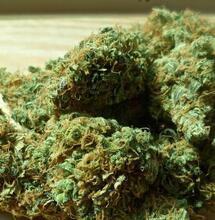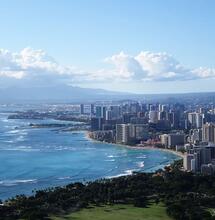Cannabis and Epilepsy

Cannabis-based medications have replaced various conventional drugs over the last decade. Perhaps most successfully, this has been the case with antiepileptic drugs. CBD drugs have been found to be superior in many cases of epilepsy, especially severe forms such as Dravet syndrome or Lennox-Gastaut syndrome.
For some types of epilepsy, there are a few existing drugs to choose from that can successfully control accompanying seizures. For the types like Dravet syndrome, the discovery of CBD's ability to manage seizures has been a game-changer.
In 2018, Epidiolex for oral use became the first cannabis drug approved by the U.S. Food and Drug Administration. This was a huge recognition for medical cannabis. CBD proved more effective than many other anticonvulsants, many of which have a range of adverse side effects.
Several U.S. states initially included both child and adult forms of epilepsy as approved conditions treatable with cannabis medicines. Many more followed quickly. Today even in those states where there are strictest regulations over cannabis, patients with epilepsy can access cannabis drugs for their treatment.
How Does Cannabis Help Stop Seizures?
It is not entirely clear how CBD helps prevent epileptic seizures.
Seizures occur due to changes in the brain's electrical activity.
CBD's antiseizure effect most likely owes to the cannabinoid interaction with the body's endocannabinoid system. This system has various bodily functions, such as regulating appetite, sleep, pain, immune response, and more.
It's considered that CBD can modify these functions by engaging with receptors that are part of the endocannabinoid system.
Animal research suggests that the anticonvulsant effect of CBD come from the cannabinoid's ability to reduce neuron excitability by acting on a particular group of receptors.
A 2015 open-label trial studied the effects of CBD in managing seizures in 162 children and young adults between ages 1 and 30 and confirmed that cannabidiol might reduce seizure frequency. The study also said that CBD is safe for use in children and young adults with highly treatment-resistant epilepsy.
CBD for Dravet syndrome
A rare and severe form of epilepsy, Dravet syndrome causes seizures that don't respond well to medication. Attacks usually start between the ages of 4 months and 12 months. The first seizures are often accompanied by fever and are known as febrile seizures.
How do we know CBD oil helps with Dravet syndrome? A clinical trial compared the daily intake of Epidiolex among participants aged 2 to 18 and a control group who received a placebo. They found that Epidiolex helped the young patients experience a significant drop in seizure frequency or a 39 percent decrease. Those in the control group only experienced a 17 percent decrease.
CBD for Lennox-Gastaut syndrome
Lennox-Gastaut syndrome is another form of severe epilepsy that affects up to 5 percent of childhood epilepsy cases. Seizures usually begin before the age of four.
In one of the studies that have been taken to gauge the effectiveness of Epidiolex for this type of epilepsy, researchers found that participants who took Epidiolex experienced 44 percent fewer seizures. Those in the control group experienced 22 percent fewer seizures.
Another study that tested various dosings of Epidiolex reconfirmed the fewer seizures trend. Even smaller doses were found to be more effective than taking no CBD medicine at all.
CBD for Other Types of Seizures
Clinical trials have also shown that Epidiolex is helpful in those who suffer from a Tuberous sclerosis complex. In this condition, the body is invaded by noncancerous tumors that cause seizures, among other symptoms. The median improvement in this group was 48 percent fewer seizures in a group of 148 patients.
How to Use CBD for Seizures?
The recommended starting dose for Epidiolex is 2.5 mg/kg twice daily. After a week, the dose may be increased to 5 mg twice a day. The maximum increase is 10 mg/kg per day.
Not everyone will react so well to CBD. There are cases where CBD use results in an increase in seizure activity. Abruptly stopping the use of CBD should be avoided as this may also cause more seizures.
CBD might interact with other medications used to control seizures. Depending on the case, it may augment the effect of that other medication or make it less effective.
Common side effects of CBD include sleepiness, drowsiness, diarrhea, and loss of appetite.
All of the above are more than valid reasons why any CBD treatment for seizures must be carefully considered, discussed and supervised by a doctor. A health professional can follow through with the patient's response to CBD oil, can help determine if the medication is working, and can help determine the dosings.













